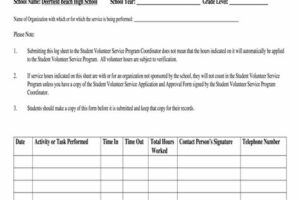Table of Contents
Incentivizing Volunteer Work: Discover effective strategies to motivate and engage volunteers. Explore the benefits of recognition, rewards, and incentives to boost volunteer participation. Learn how to create a positive volunteer experience and foster long-term commitment.
Incentivizing volunteer work is a compelling strategy to motivate individuals to give back to their communities. Not only does volunteering benefit the recipients, but it can also have profound personal and societal impacts. By offering incentives, such as recognition, rewards, or even professional development opportunities, organizations can entice more people to engage in volunteer work, ultimately fostering a culture of altruism and social responsibility. Furthermore, incentivizing volunteerism can lead to enhanced collaboration, skill development, and a sense of accomplishment among individuals who contribute their time and expertise. This approach not only acknowledges the value of volunteers’ efforts but also encourages a continuous cycle of giving and community engagement.
Introduction
In today’s fast-paced world, where time is a valuable commodity, convincing individuals to volunteer their time and skills can be challenging. Many people are reluctant to participate in volunteer work due to various reasons such as lack of motivation, busy schedules, or the perception that volunteering does not provide any tangible benefits. However, by implementing effective strategies to incentivize volunteer work, organizations and communities can encourage active participation and create a more engaged and compassionate society.
The Importance of Volunteer Work
Volunteer work plays a crucial role in addressing societal issues, supporting vulnerable populations, and fostering community development. It enables individuals to contribute their skills and expertise towards meaningful causes, creating a positive impact on both the recipients of the service and the volunteers themselves. Moreover, volunteer work offers a unique opportunity for personal growth, skill development, and expanding social networks.
Financial Incentives
While volunteer work is primarily driven by altruistic motives, providing financial incentives can help overcome certain barriers and attract individuals who may otherwise be hesitant to volunteer. Offering small stipends, reimbursements for transportation or meals, or even gift cards as tokens of appreciation can make volunteer work more accessible and appealing to a wider range of people. These incentives not only acknowledge the value of volunteers’ time and effort but also alleviate any financial burdens associated with participating in volunteer activities.
Recognition and Awards
Recognizing the contributions of volunteers is essential for fostering a sense of accomplishment and motivation. Organizations can establish recognition programs that publicly acknowledge and appreciate the efforts of volunteers. This can include certificates, badges, or even annual awards ceremonies. By highlighting the impact of volunteer work and celebrating the dedication of individuals, organizations create a culture of appreciation and inspire others to get involved.
Flexible Scheduling
One of the common barriers to volunteering is the lack of flexibility in scheduling. Many potential volunteers may have busy lives or unpredictable commitments that make it challenging to commit to a regular volunteer schedule. Offering flexible scheduling options, such as evening or weekend opportunities, allows individuals to contribute their time without disrupting their daily routines. This flexibility makes it easier for people with various personal and professional responsibilities to engage in volunteer work.
Professional Development Opportunities
Highlighting the professional development benefits of volunteer work can attract individuals who are seeking to enhance their skills and boost their resumes. Organizations can offer training programs, workshops, or mentorship opportunities to volunteers, enabling them to acquire new expertise or refine existing ones. By aligning volunteer work with personal and career growth, organizations can attract individuals who value continuous learning and skill development.
Meaningful and Impactful Projects
Volunteers are more likely to stay engaged and dedicated when they can see the direct impact of their work. To incentivize volunteer participation, organizations should develop projects that are meaningful and align with volunteers’ interests and values. By involving volunteers in the planning and decision-making process, organizations can ensure that the projects are fulfilling and allow volunteers to make a tangible difference in the community.
Networking and Social Opportunities
Volunteer work provides an excellent platform for individuals to expand their social networks and connect with like-minded individuals. Organizations can organize social events, networking sessions, or team-building activities to foster camaraderie among volunteers. Building a sense of community within the volunteer program not only increases retention rates but also enhances the overall volunteer experience.
Opportunities for Leadership and Responsibility
To incentivize long-term volunteer engagement, organizations should provide opportunities for volunteers to take on leadership roles and responsibilities. By empowering volunteers to lead projects or mentor new volunteers, organizations acknowledge their skills and dedication while providing opportunities for personal growth. This sense of ownership and responsibility encourages volunteers to stay committed and invested in the organization’s mission.
Sharing Success Stories
Highlighting success stories and showcasing the impact of volunteer work can inspire others to get involved. Organizations can share stories through newsletters, social media platforms, or even local news outlets. These narratives not only recognize the efforts of volunteers but also demonstrate the tangible benefits of volunteer work, encouraging more individuals to contribute their time and skills.
Conclusion
Incentivizing volunteer work is essential to overcome barriers and engage individuals in meaningful community service. By offering financial incentives, recognition, flexible scheduling, professional development opportunities, and creating a sense of community, organizations can successfully motivate individuals to participate in volunteer work. Through these strategies, we can build a society that values and supports the spirit of volunteerism, ultimately leading to positive social change.
Incentivizing Volunteer Work: Encouraging Community Engagement
Volunteering offers numerous benefits, such as fostering a sense of community engagement and promoting social responsibility. By incentivizing volunteer work, individuals are more likely to recognize and experience these advantages, further stimulating their involvement in various community projects and initiatives. These benefits extend beyond personal growth, as volunteering also contributes to the overall welfare of society.
Recognition and Appreciation: Acknowledging Volunteer Contributions
One effective way to incentivize volunteer work is by providing recognition and appreciation for the efforts and contributions of volunteers. Instituting awards, certificates, or public acknowledgments can significantly boost motivation, allowing volunteers to feel valued and acknowledged for their dedication. This approach fosters a positive environment that encourages continuous engagement and inspires volunteers to become advocates for the causes they support.
Skills and Professional Development: Enhancing Personal and Career Growth
Volunteering offers a unique opportunity for individuals to develop new skills and enhance their professional growth. By incentivizing volunteer work through recognized skill development programs, individuals can not only make a difference in their communities but also enhance their resumes and expand their networks. This can lead to greater employment opportunities, as employers often value candidates who demonstrate a commitment to community service.
Flexibility and Inclusion: Tailoring Volunteer Opportunities
Offering flexible volunteer opportunities is another effective way to incentivize individuals from diverse backgrounds to contribute their time and skills. By tailoring volunteer roles to accommodate different schedules, abilities, and preferences, organizations can ensure that more people are able to participate. This inclusive approach supports a diverse volunteer base, enriching the experiences and perspectives brought into community projects.
Personal Connection: Building Meaningful Relationships
Incentivizing community engagement through volunteer work can foster a sense of personal connection and build meaningful relationships among individuals. By creating platforms for volunteers to connect and interact, such as volunteer appreciation events or networking sessions, organizations can strengthen community bonds, encourage collaboration, and promote a sense of collective purpose.
Financial Incentives: Encouraging Volunteering Through Monetary Rewards
While the ethical nature of volunteer work might make the idea of financial incentives seem contradictory, they can play a role in incentivizing individuals to engage in community service. Offering small monetary rewards, such as stipends or gift certificates, can help cover expenses associated with volunteering and mitigate any potential financial barriers, making it more accessible for individuals to participate in meaningful activities.
Impact Measurement: Providing Transparency and Accountability
Creating mechanisms to measure and communicate the impact of volunteer work can serve as a powerful incentive. When volunteers can clearly see the tangible results and positive change they bring about through their efforts, it reinforces their commitment to continue contributing their time and skills. Demonstrating transparency and accountability in showcasing the outcomes achieved through volunteer work helps volunteers understand the significance of their contributions and motivates them to persist in their efforts.
Continued Engagement: Ensuring Sustainable Volunteerism
Sustaining volunteerism requires ongoing efforts to encourage continued engagement. By establishing ongoing support systems, fostering mentorship programs, and providing opportunities for volunteers to assume leadership roles, organizations can ensure a sustainable and long-term commitment from volunteers. Continued engagement not only benefits the organization but also helps individuals develop a deep sense of purpose and fulfillment, further incentivizing their involvement in volunteer work.
From a professional standpoint, incentivizing volunteer work can have numerous benefits for both individuals and organizations. By offering incentives, we can motivate more people to engage in volunteer activities, which ultimately leads to a more engaged and active community.
Here are some key points to consider when discussing the importance of incentivizing volunteer work:
Increased participation: Incentives serve as powerful motivators that can attract a larger number of volunteers. By offering rewards or recognition, individuals who may not have considered volunteering before might be encouraged to get involved and contribute their time and skills to various causes.
Enhanced skill development: Volunteering provides an opportunity for individuals to develop and enhance their skills in a practical setting. By incentivizing volunteer work, we can attract professionals from diverse backgrounds who can bring their expertise to support community initiatives. In turn, volunteers can acquire new skills, expand their network, and potentially enhance their career prospects.
Improved commitment and retention: Offering incentives helps foster a sense of commitment among volunteers, leading to increased retention rates. When individuals feel valued and recognized for their efforts, they are more likely to continue their involvement in volunteering activities over the long term.
Strengthened community engagement: Incentivizing volunteer work can lead to a stronger sense of community engagement. When individuals feel rewarded for their contributions, it creates a positive cycle of volunteerism, inspiring others to get involved and making the community as a whole more active and connected.
Increased impact: By incentivizing volunteer work, organizations can attract a wider range of skilled volunteers, leading to a more diverse pool of expertise and resources. This, in turn, can amplify the impact of volunteer efforts, allowing organizations to achieve their goals more effectively.
In conclusion, incentivizing volunteer work is a valuable strategy to promote community involvement, enhance skill development, improve retention rates, strengthen community engagement, and increase the overall impact of volunteer efforts. By recognizing and rewarding volunteers, we can create a more vibrant and active society where individuals are motivated to give back to their communities.
Thank you for taking the time to visit our blog and explore the topic of incentivizing volunteer work. We hope that this article has provided you with valuable insights and ideas on how to encourage individuals to engage in meaningful volunteer activities. While volunteer work is inherently driven by altruism and the desire to make a positive impact, there are various ways in which we can enhance these motivations and inspire more people to actively participate in volunteering.
One effective approach to incentivizing volunteer work is by recognizing and appreciating the efforts of volunteers. By acknowledging their contributions and publicly expressing gratitude, we not only validate their hard work but also foster a sense of belonging and community. This can be done through appreciation events, certificates, awards, or even simple gestures like personalized thank-you notes. Recognizing volunteers not only boosts their morale and motivation but also serves as a powerful tool for attracting new volunteers who witness the appreciation bestowed upon their peers.
Another strategy to incentivize volunteer work is by offering non-monetary rewards and benefits. While financial incentives may seem appealing at first, they can sometimes undermine the essence of volunteering. Instead, we can focus on providing volunteers with perks that enhance their experience and personal growth. For example, offering exclusive training sessions, workshops, or access to networking opportunities can be highly motivating. Additionally, giving volunteers the chance to develop new skills or gain valuable experiences through their service can be a reward in itself. By creating a supportive environment and investing in their personal development, we can incentivize volunteer work while maintaining its intrinsic value.
Lastly, fostering a sense of purpose and impact is crucial in incentivizing volunteer work. Volunteers want to feel that their efforts are making a real difference in the lives of others or the community as a whole. By clearly communicating the impact of their work and providing regular updates on the outcomes achieved, we can help volunteers understand the significance of their contributions. Sharing stories and testimonials from those who have benefited from their efforts can also be a powerful motivator. When volunteers see the tangible results of their work, they are more likely to stay engaged and motivated to continue making a difference.
In conclusion, incentivizing volunteer work is not about replacing the intrinsic motivations that drive individuals to give back, but rather about enhancing and nourishing those motivations. By recognizing and appreciating volunteers, offering non-monetary rewards and benefits, and fostering a sense of purpose and impact, we can create an environment that encourages more people to actively engage in volunteer work. Together, let us continue to inspire and empower individuals to make a positive change in the world through their selfless acts of service.
Video Incentivizing Volunteer Work
1. How can I incentivize volunteer work?
There are several effective ways to incentivize volunteer work:
- Offer recognition and rewards: Recognize the efforts of volunteers by publicly acknowledging their contributions and offering small rewards like certificates, badges, or tokens of appreciation.
- Create a positive environment: Foster a positive and supportive atmosphere where volunteers feel valued, respected, and part of a team. This can significantly enhance their motivation to continue volunteering.
- Provide training and skill development opportunities: Offer training programs or workshops that enable volunteers to acquire new skills or enhance existing ones. This can make their volunteer experience more enriching and provide them with valuable knowledge for personal growth.
- Offer flexible schedules: Accommodate volunteers’ time constraints by providing flexible scheduling options. This allows individuals with busy lives to allocate time for volunteering without feeling overwhelmed.
- Connect volunteers to meaningful causes: Help volunteers understand the impact of their work by providing clear information about the organization’s mission and how their efforts contribute to achieving it. This sense of purpose can be a powerful motivator.
2. Are there any financial incentives for volunteer work?
While volunteer work is typically unpaid, there may be certain financial incentives available:
- Tax deductions: In some countries, individuals who volunteer for registered non-profit organizations may be eligible for tax deductions on expenses related to their volunteer work. Check with your local tax authorities for specific regulations.
- Reimbursement of expenses: Some organizations may reimburse volunteers for out-of-pocket expenses incurred during their service, such as travel expenses or necessary supplies. Discuss reimbursement policies with the organization you are volunteering for.
- Scholarships and grants: Certain scholarships and grants may be available for individuals who have demonstrated exceptional volunteer service. Research scholarship opportunities specific to volunteer work in your field of interest.
3. How can I encourage employee volunteerism?
To encourage employee volunteerism, consider the following strategies:
- Implement paid volunteer time-off policies: Allow employees to take a certain number of paid days off each year to engage in volunteer activities of their choice.
- Organize team volunteer projects: Schedule regular group volunteer activities that employees can participate in together. This promotes team building and strengthens relationships among colleagues.
- Create partnerships with non-profit organizations: Collaborate with local non-profit organizations to identify volunteer opportunities tailored to your employees’ skills and interests. This makes it easier for employees to get involved.
- Recognize and celebrate employee volunteers: Acknowledge and celebrate employees who engage in volunteer work by highlighting their efforts through internal communications, newsletters, or company-wide events.
- Offer skill-based volunteering options: Identify projects where employees can utilize their professional skills to make a meaningful impact. This allows them to contribute their expertise while volunteering.
Remember, incentivizing volunteer work should always be done in a way that aligns with the values and purpose of the organization, ensuring that the focus remains on making a positive difference rather than solely seeking personal gain.






